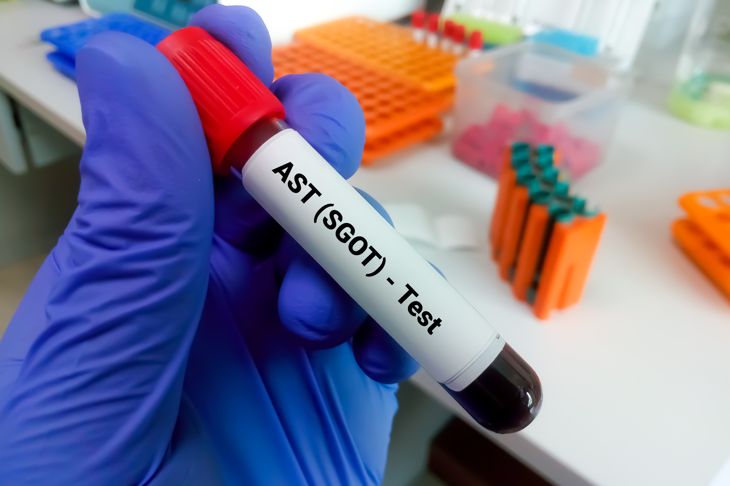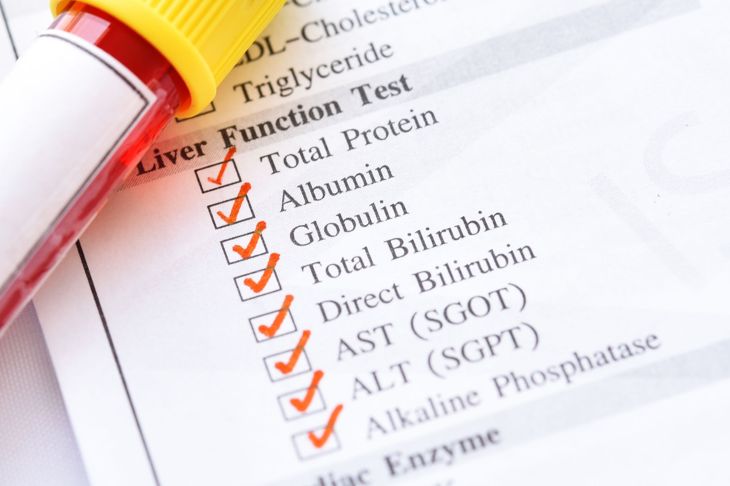Aspartate aminotransferase or AST is an enzyme found in the liver and other organs, like the heart and pancreas. When one of these organs is damaged, its cells release AST into the blood, and an AST blood test will detect this increase and identify liver damage.This blood test is usually part of a larger panel of tests that doctors use to monitor or diagnose liver problems.
What an AST Blood Test Measures
An AST blood test measures the amount of AST in the blood. Usually, doctors use it to assess the health of the liver, but they can use it to evaluate other conditions as well.An AST blood test alone is not sufficient to diagnose specific conditions, and it is usually run alongside other blood tests to provide the doctor with a better overall picture of someone’s health.
Who Needs an AST Blood Test
Doctors often order an AST blood test as a part of a routine checkup or if someone complains of symptoms of liver damage. These symptoms can include fatigue, weakness, nausea, vomiting, jaundice, itching, or swelling in the ankles, legs, or abdomen.A health care provider may also order AST and other blood tests for people with a family history of liver disease or those with obesity, diabetes, excessive alcohol use, or suspected or confirmed hepatitis.
Monitoring and Diagnosing Conditions
AST blood tests are useful in monitoring and diagnosing certain conditions. An AST test done alongside other labs can help determine if a patient’s known condition is worsening, improving, or staying the same and whether treatment is effective.Sometimes, doctors order an AST test and other labs if someone is taking a medication known to damage the liver. AST test results cannot determine a specific diagnosis, but they are a part of the diagnostic process as they can hint that there is a problem, often quite early in its progression.
Liver Function Tests
AST is usually tested along with other labs collectively known as liver function tests. These tests include alanine transaminase (ALT), alkaline phosphatase (ALP), albumin, bilirubin, total protein, and prothrombin time (PT).Collectively, these labs give doctors a better picture of what might be happening in the liver and help guide the next steps of diagnosis and treatment.
ALT vs AST
ALT and AST are commonly measured together in either a liver function test or as part of a comprehensive metabolic panel, which measures 14 substances in the body.Both AST and ALT are liver enzymes, but because AST is found in other places of the body, it is not as specific to identifying liver issues as ALT.
What to Expect
An AST blood test is similar to any other blood test. A nurse, phlebotomist, or other healthcare professional uses a needle to get a blood sample from a vein in the arm.Fasting is not strictly necessary for an AST test, but it is often ordered alongside other tests that do require 10 to 12 hours of fasting.
Normal AST
The normal range for an AST test varies depending on the lab, so all results should be checked against the lab-specific range. There is no AST range that is normal for everyone, and levels can change depending on age, race, sex, and weight.Doctors consider all of these factors when interpreting AST lab results.
High AST
Elevated AST levels can be a sign of a liver condition, especially when other liver screening labs are abnormal. A high AST level might indicate hepatitis, cirrhosis, liver cancer, or liver tissue death.Because AST is found throughout the body, high AST levels may also be a sign of a problem somewhere other than the liver, like heart attack, muscle disease, or pancreatitis, but this is uncommon.
Other Causes of High AST
High AST results do not always indicate an underlying medical condition. AST levels can also be temporarily elevated due to a number of conditions, including seizures, burns, surgery, intense exercise, and pregnancy.Doctors will consider all potential factors when analyzing AST results, including the patient’s medical history and other lab results.
Follow Up Care
Following a result of high AST levels, doctors will typically prescribe follow-up testing if the patient has a known liver condition or is symptomatic. Asymptomatic people with persistent but mild AST elevation may also require additional testing.Follow-up tests may include a repeat AST test, a liver biopsy, additional blood tests, or imaging tests, like an MRI, CT, or ultrasound.

 Home
Home Health
Health Diet & Nutrition
Diet & Nutrition Living Well
Living Well More
More




















